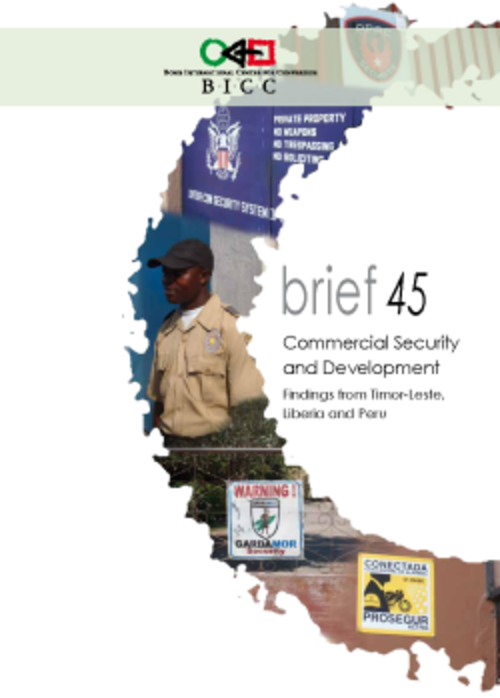Publications
Commercial security and development: Findings from Timor-Leste, Liberia and Peru
Release Date
2012-01
Language
- English
Topics
- –
Commercial security affects a number of development-related factors, such as the capacity of states to govern, overall feelings of public safety, economic growth and social welfare.
Findings from field research in Timor-Leste, Liberia and Peru indicate that the relation between commercial security and development is highly ambivalent.
Security markets can foster economic growth and ease the burden on the back of the public security sector. Nevertheless, weak regulation of commercial security practices has created problems. These include low-level conflicts between public and private security providers over policing authorities in particular surroundings. Moreover, a trend toward the corporatization of private guarding has engendered extremely exploitative labor relations in the security industry. In the worst case, security firms may even commit frequent human rights abuses, thereby directly undermining any wider sense of security in society. From a development-policy perspective, these findings are all the more pertinent, since international development organizations themselves are often the largest customers of security companies.
PDF-Download
brief45.pdf
[English] (5.94 MB)

Cite as
@techreport{vonBoemckenAshkenaziSchmitz-Pranghe2012,
author = "Marc von Boemcken and Michael Ashkenazi and Clara Schmitz-Pranghe",
title = "Commercial security and development: Findings from Timor-Leste, Liberia and Peru",
latexTitle = "Commercial security and development: Findings from Timor-Leste, Liberia and Peru",
publisher = "bicc",
number = "45",
institution = "bicc",
type = "BICC Knowledge notes",
year = "2012",
address = "Bonn",
}
Document-Type
BICC Knowledge notes
Publisher
bicc
Place
Bonn
Countries/Region
Timor-Leste , Liberia , Peru



